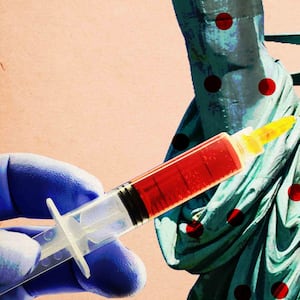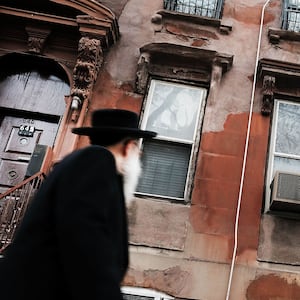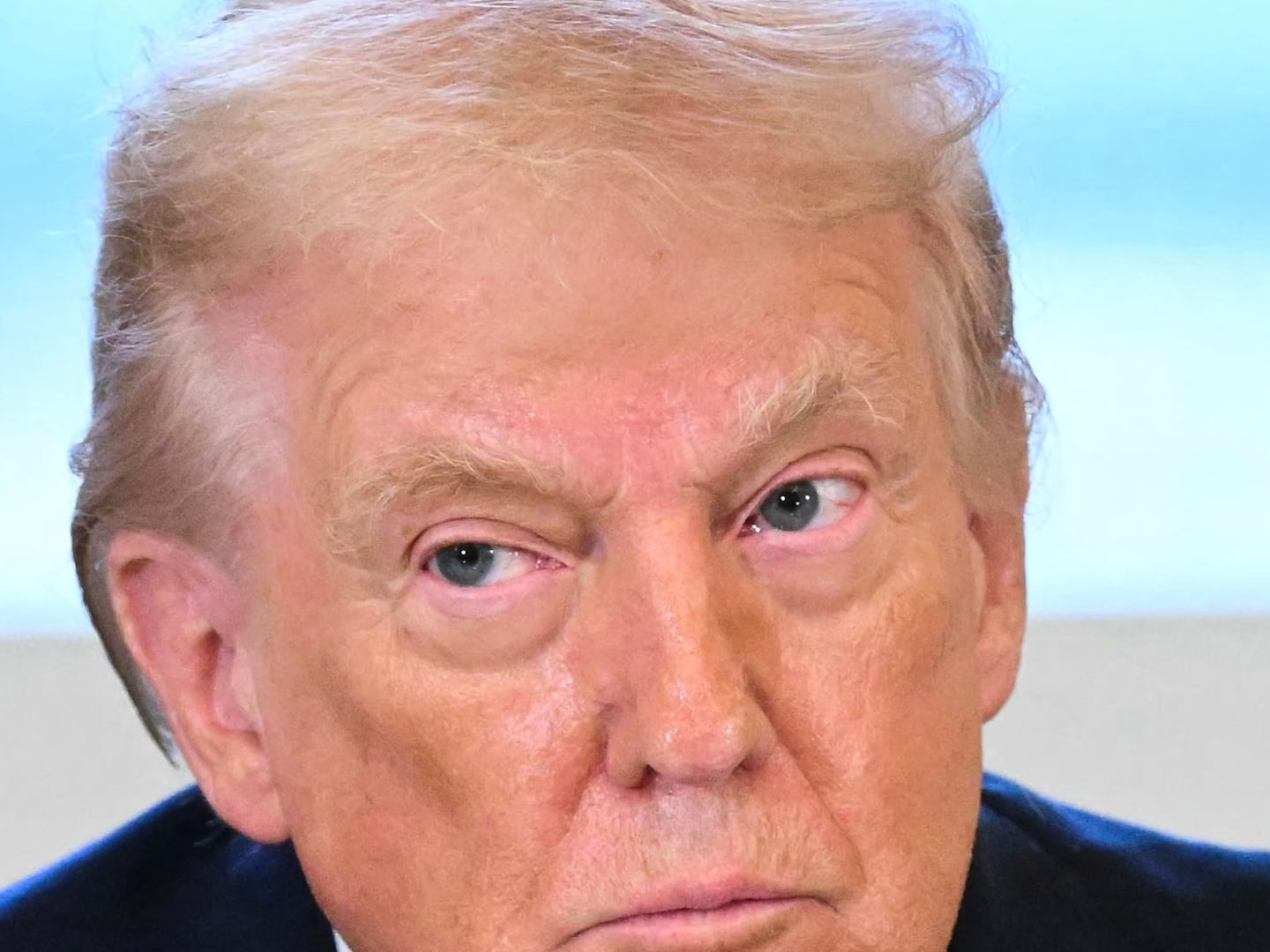Measles cases across the United States have surged 43% in just two weeks, underscoring just how contagious the disease can be even as anti-vaxxers wage legal battles against emergency measures to stem the spread of the virus.
The Centers for Disease Control reported Monday that between Jan. 1 and April 11, there have been 555 confirmed cases in 20 states. A week ago, that number was 465, and the week before that it was 387.
“This is the highest number of cases reported in any week in 2019,” Amanda Cohn, senior advisor for vaccines at the CDC, told The Daily Beast on Monday. “It’s hard to anticipate over the next several weeks [what’s next]. It depends on how many susceptibles are in the communities.”

The figure announced Monday is the second-highest number of cases in a decade and on pace to exceed the previous record, set in 2014, since endemic measles was eradicated almost 20 years ago.
Health officials have said the rise in measles is being fueled by travel to and from countries like Israel and Ukraine, which have huge outbreaks, and a growing anti-vaxxer movement that falsely claims the shots cause autism and other medical problems.
Most of this year’s cases can be linked to a handful of serious outbreaks, including nearly 300 in New York City, where the mayor has decreed everyone in the affected communities must be vaccinated—sparking a new lawsuit on Monday.
“There is insufficient evidence of a measles epidemic or dangerous outbreak to justify the respondents’ extraordinary measures, including forced vaccination,” a suit Monday claimed.
The suit was filed in Brooklyn, where measles has spread in the Orthodox Jewish community, on behalf of five families.
Their lawyer, Robert Krakow, who handles “vaccine injury cases,” said the mayor’s order was “inappropriate.”
Krakow said that the plaintiffs were seeking to have the city recognize that he families had filed for religious exemptions under New York law and that they had gone through proper procedures for their families. “Our goal is to allow people to choose whether or not to vaccinate,” he said.
“The city needs to stop exaggerating the problem,” Krakow said. “I don’t think for a second measles is not a concern—it is—but it’s been overblown, and the city has overreacted and overreached here.”
City officials have said at least 21 people have been hospitalized since the Brooklyn outbreak began in October when an unvaccinated child returned from a visit to Israel.
Krakow said he believes measles creates “de facto quarantines,” reasoning that when someone is infected, “they’re not in public, they’re not in school—they’re home sick.”
“We don’t think the city has to come in and remove everybody with measles,” he said.
But Walter Orenstein, the associate director of the Emory Vaccine Center, noted that an infected person can spread the virus for several days before they develop symptoms like rashes, coughing, and fevers.
Public health experts worry the number of those infected might increase even more in upcoming weeks.
“With spring breaks occurring these last few weeks, and with Easter, Passover, and other holidays (like the Jewish festival Purim), there has been both a significant amount of family domestic and international travel, and large, close knit gatherings of people who may be vulnerable to picking up and spreading measles if exposed to the virus, so I wouldn't be stunned if we saw another wave arising out of these events,” said Ross David Silverman, professor of health policy and management at Indiana University’s Fairbanks School of Public Health.
From New York to Michigan to Washington State, officials have offered free vaccine clinics and banned the unvaccinated from schools or even public places to bring the crisis under control.
Still, the CDC’s Cohn said, “we don’t have a great handle on how much longer this will last.”
Cohn said the CDC is also focused on getting accurate information to those who might fear vaccinations.
“The important thing to understand from a national perspective that the number of cases in the U.S. is driven by the outbreak in New York and New York City,” she added. “We know that every parent wants to make the best decision for their child. We need to make sure they have accurate information and are not confused.”








